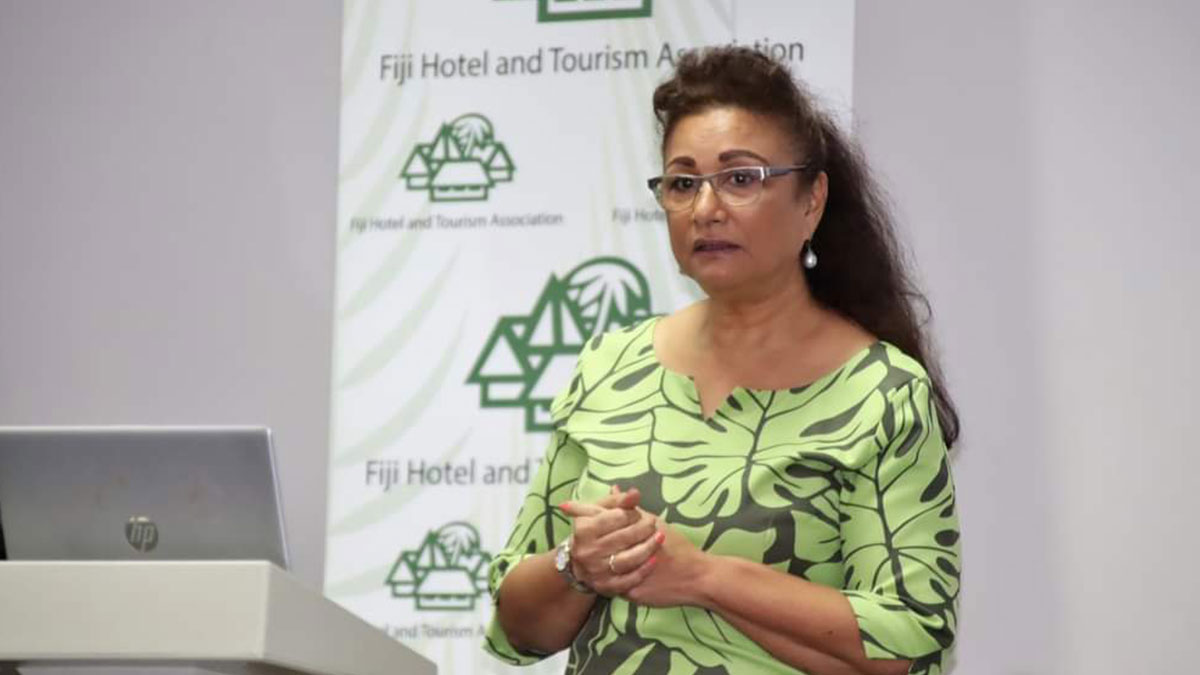
The Fiji Hotel and Tourism Association has opposed the proposed electricity tariff increase submitted by Energy Fiji Limited to the Fijian Competition and Consumer Commission as they say the reasoning behind the pursuit of a tariff increase is bizarre and deeply flawed.
The Association says this is simply ignoring what the future and climate change demand us to do now.
They say the commitment to provide access to affordable, reliable, secure, and sustainable energy services to all Fijians through a safe and efficient transition of Fiji’s energy systems, transport, and infrastructure from its existing reliance on imported fossil fuels to low carbon and renewable-energy based technologies by the Fijian Government's cabinet approved National Energy Policy 2023–2030 is odd.
Chief Executive Officer Fantasha Lockington says collaboration and a determined vision to leave no Fijian behind in a national effort to drive the transition towards cleaner energy sources, reducing carbon emissions, and preserving Fiji's natural resources for the benefit of future generations is critical.
She says they are appalled by EFL’s reasoning for a tariff increase including their perception that renewable energy alternatives might drive up costs to a reduced customer base that may only be low-income earners, instead of working with their customers to embrace where the entire world is going except for them.
She further says the association firmly believes that EFL's approach to renewable energy sources, in the context of global climate change efforts, should be seen as an opportunity for innovation rather than a threat to their commercial gains, given the $58 million profit it recently announced for 2022 despite Fijian families and businesses experiencing continuing power outages, disruptions and ongoing difficulties to access power for rural households and commercial investments.
The recent pursuit of a tariff review with the Fijian Competition and Consumer Commission has raised deep concerns within Fiji's business and industrial sectors, including tourism operators, many of whom have increasingly turned to solar power to enable more reliable power sources, align their strategic focus on sustainability and reduce energy costs.
While EFL has pointed to genuine challenges such as rising fuel costs and the necessity to develop hydro projects, FHTA underscores the importance of sustainable practices and the need to either maintain or lower business costs, particularly in the aftermath of the COVID-19 pandemic and the expected devastating impacts of climate change being seen more often around the world.
The tourism industry has progressively embraced sustainability as a cornerstone of its business strategies as renewable energy sources, including solar power, have proven to be reliable and economically viable options for reducing electricity expenses, reducing their carbon footprints.
EFL says the advanced solar power technologies can provide more efficient energy solutions for households, businesses, industries and public and commercial buildings as the utilization of distributed generation units, such as solar panels combined with small-scale energy storage systems, can enhance self-consumption and alleviate grid congestion.
They say this approach holds the potential to ensure the recurrent power blackouts that have historically plagued Fijians are a thing of the past and the sole power provider for the nation appears unable or unwilling to embrace the need to reduce dependence on fossil fuels.
However, the FHTA will be making a formal submission on the issue.
Stay tuned for the latest news on our radio stations

